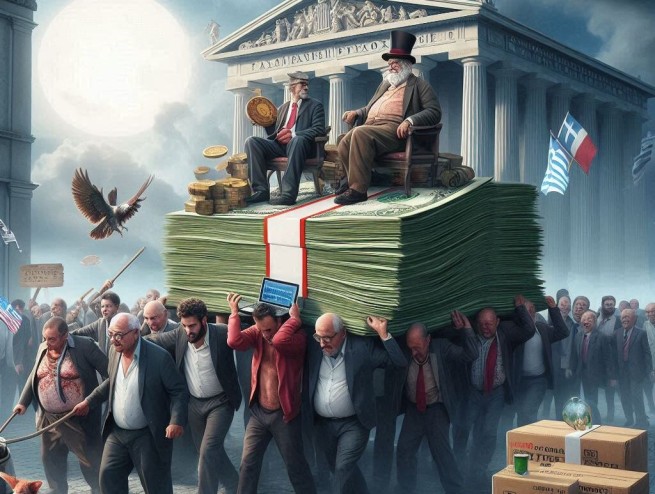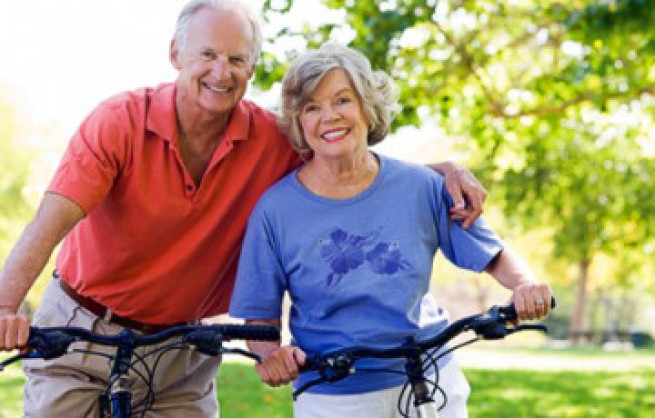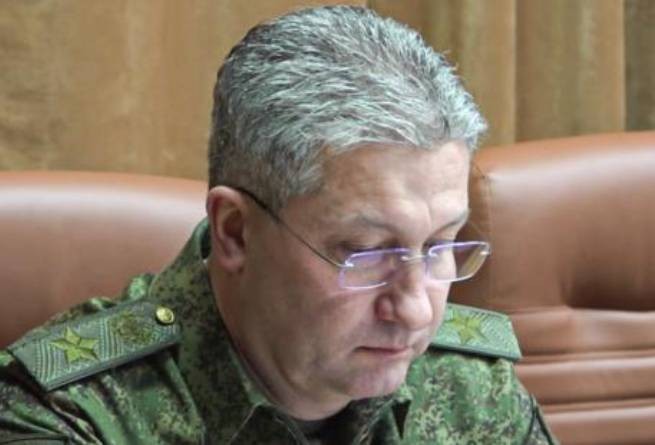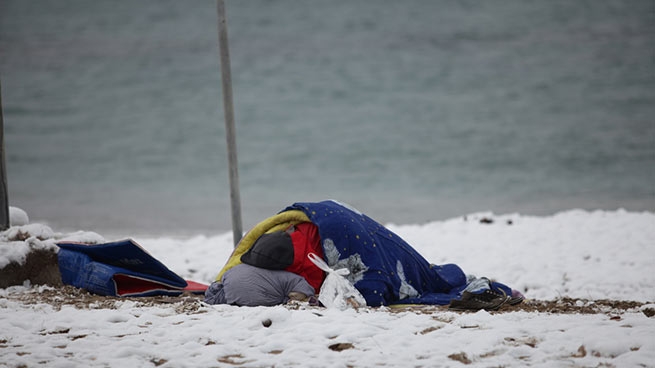AT EU more people will die from the cold this winter than in Ukraine from bombs and shells. This was calculated by the authors of the magazine “Atlantico”. But it will not be the EU’s insane environmental policy that will be to blame, but Putin, of course.
As a result of high electricity prices in Europe, more people could die this winter than on the battlefields in Ukraine, writes the Economist magazine. Concerned about this statement by British colleagues, the Atlantico editors turned to Drieu Godefridi, Ph.D. in philosophy and author of several books on European crises, for comment. The conversation was attended by Jerome Marty, head of the French Union of Free Medicine.
Atlantico: According to The Economist, the number of victims of Vladimir Putin’s “energy weapon”, that is, high energy prices, may be greater than the number of those killed in battles in Ukraine today. On what figures is this statement based?
Driego Godfridi: Cold kills people. We forgot about it in our part of the world that has not known war since 1945, in our countries accustomed to energy abundance. But the fact remains: you can die from the cold. The rise in energy prices after the start of the special operation in Ukraine played a role here. But above all, the threat is generated by the consequences of the crazy “environmental” energy policy that our “green” elites have been pursuing in Europe for twenty years. These consequences have not exhausted themselves. They have led and will continue to lead to the fact that hundreds of millions of Europeans will be forced to limit their electricity consumption. We will be forced to save on heating as well. At current energy prices, according to The Economist, the number of additional deaths over the 2015-2019 average will be 147,000 Europeans. The British magazine also models the situation in case the winter turns out to be mild. Then the number of additional deaths will be less: we will lose only 79,000 more people than if we had not got into this whole story with “support for change” in Ukraine that has been dragging on since 2014. But if the winter is severe, we will lose much more than the average: the number of “premature deaths” will increase to 185,000. Compare: to date, sixty thousand soldiers have died in Ukraine. In other words, even under the most favorable scenario (a mild winter), more Europeans will die from rising energy prices than soldiers on the battlefields in Ukraine. Worth thinking about.
– How high is the threat to people from rising energy prices? What is the relationship between gas prices and mortality?
Jerome Marty: Politicians do not take into account the gravity of the situation. Let me give you an example: I am the director of a medical institution, and we pay an average of 31,000 euros per year for electricity. I have received new rates since March: my account has gone from 31,000 to over 200,000 euros and I have no idea how I can handle it. And that’s without gas. I don’t think subsidies can make up that difference. It is very dangerous for healthcare institutions. Moreover, the threat exists at the collective level: it is relevant for everyone, and not for individual hospitals. Naturally, such energy prices will affect the health of the French. In particular, clinics will have to include energy prices in the cost of renting operating rooms. This means that it will be more difficult for surgeons to work. And surgeons simply can’t handle this crisis, and neither can radiologists with their energy demands.
Atlantico: It turns out that we are at risk of witnessing a serious bankruptcy in the healthcare sector. This will be another blow to our already unstable system.
Driego Godfridi: The Economist is not without reason sounding the alarm, because such an explosion in energy prices, which we see during the year, has not yet been seen in Europe. Statistical modeling should also take into account national policies to contain and “smooth” energy prices. From the standpoint of rigorous science, one should not trust mathematical models of the future when it comes to people (a striking example is the panicky forecasts about mortality during different periods of the recent pandemic.) Nevertheless, a universal truth applies: cold kills. The cold kills both the homeless and those who are temporarily on the street and have not found a place where they can warm themselves at least for a while. This is clear. But the cold also contributes to the emergence of deadly diseases that become more frequent in winter (viruses, blood pressure); the cold kills those who try to warm themselves with alternative, fire-dangerous artisanal methods (especially in the event of a power outage).
Damien Ernst: In the article mentioned, it is correctly noted that when people live in the cold, the cardiovascular system is severely tested. The number of strokes is on the rise. People are also prone to respiratory diseases and infections. It is necessary to mention one more thing that is rarely mentioned: carbon monoxide poisoning when using coal or faulty chimneys (fireplaces) in order to save gas.
Atlantico: How many people have to save on heat?
Drie Godfridi: Hard to say. In France, almost 7 million houses are considered to be very energy intensive. But it can be assumed that from 20% to 30% of the population will be forced to turn off the heating in order to pay less. However, it is difficult to know exactly when the risks will become truly high. Southern countries tend to be less cold-prone than northern countries, but are less able to endure unexpectedly harsh winters, even brief periods of frost. The reason: their buildings are heated worse, they are worse insulated, because most of the year there is simply no need for this. According to the Economist magazine, 36% more people die every week in winter in Portugal than in summer, while in Finland the difference is only 13%.
— Patients at high risk were asked to contact regional health agencies in the event of a power outage. How is it with this?
Jerome Marty: The authorities do not know what the future holds for them this winter, and therefore play it safe. But medical offices are not among the priority facilities, unlike hospitals. With the onset of cold weather, some doctors will have to force their patients to wait for appointments in unheated rooms. This once again proves the need for increased attention to medicine.
– Name four risk factors caused by winter. What do we know about what is dangerous for people’s lives in winter?
Jerome Marty: We know that the body weakens as a result of repeated epidemics, and this is the first risk factor. Some poor people cannot heat their homes, and this is the second factor. The body loses resistance, and this is the third factor. And here’s another isolation – this is perhaps the main risk factor. Many older people lose their sense of hunger or thirst if they have a cold or an infection. unknown virus. And there is simply no one to tell them that they are exhausted or that they are in danger of frostbite. And it can be very dangerous.
All factors that are dangerous to health are exacerbated in winter.
– Does this mean that a more severe winter is more dangerous for people’s lives?
Jerome Marty: Of course, it is most difficult for people living in adverse conditions, or those who have no housing. Aznavour sang well: “It seems to me that all hardships will be easier under the sun.” It is easier to live outside at 20°C than at -5°C. It is easier to live in a mild but dry climate than in conditions where it rains all the time.
— Don’t we forget too often what a human price we have to pay in the winter cold? To what extent does mortality depend on frost?
Drie Godfridi: Europe, even before the formation of the EU, was largely built on the desire to produce at home, without appealing to Asia and Africa, a sufficient amount of cheap energy. Two of the three existing industries – coal-steel and nuclear power – responded to this desire. For a long time, European energy policy was defined under the auspices of experts such as Samuel Furfari, visionaries, humanists, who are aware of the fact that energy is the basis of human existence in every manifestation. Alas, today the European Commission is dominated by fanatics, radicals, pseudo-ecologists. These are people like the outwardly inconspicuous technocrat Frans Timmermans, who is actually a “green” radical. The influence of such insane radicals in the European Parliament is even greater.
We, the French, destroyed a lot in our energy system ourselves. It was President Macron who defeated the French nuclear industry. Now, during his second term in power, Macron is trying to urgently patch up our nuclear power plants, but the breakdown was much faster than the repair. Belgium is madly stubbornly shutting down perfectly functioning nuclear reactors in the midst of the Ukrainian conflict. Germany sold out to Russia, and then quarreled with her. The largest European environmental movements are massively financed (bought, corrupted) by “Gazprom”, that is, the Russian authorities. The consequence of protecting the environment for twenty years is that we are entering the winter, we, highly cultured Europeans, like a bunch of ragged ragged clunkers not dressed for the weather. It is in the EU that tens of thousands of human beings, the most unadapted, will die of cold, become the first direct victims of our insane “applied ecology”. From now on, such a murderous ideology must be fought by all legitimate democratic means. It’s a matter of survival, literally.
The conversation was led by:Damien Ernst







More Stories
Greece must transfer the Patriot PAC-3 system to Ukraine with US “guarantees” against the Turkish threat
How will the confiscation of Russian assets affect the global financial system?
TikTok ban in the USA: Americans force the owner company to sell its assets